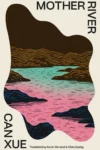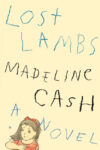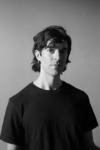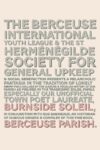 Young Critics is a regular feature in which Full Stop interviews a young critic we admire and ask them a series of questions about their work and their perspectives on writing today. In its first installment we talked to Michael Schaub, you can read the interview here.
Young Critics is a regular feature in which Full Stop interviews a young critic we admire and ask them a series of questions about their work and their perspectives on writing today. In its first installment we talked to Michael Schaub, you can read the interview here.
Recently awarded the 2011 Roger Shattuck Prize for Criticism, Marco Roth is a founding editor of the popular magazine n+1. Full Stop interviewed Roth via e-mail and discussed feeling old in your twenties, William Hazlitt, and getting younger.
Founded in 2004 by Roth, Keith Gessen, Benjamin Kunkel, Mark Greif and Chad Harbach, n+1 is now one of the most recognizable (and sexy) journals devoted to the broad (and sexy) field of contemporary cultural criticism. Smart, pressing and occasionally divisive, the young magazine has become an inspiration for many recent publications that strive to strike a similar balance between accessible, non-academic writing and rigorous commentary.
Since its inception, Roth has written regularly for the publication and covered most aspects of the cultural milieu with a rare and incisive elegance. Whether he’s writing about literature, or foreign affairs, or parenting, Roth’s analysis is always sharp, urgent and oftentimes beautiful. Additionally, he brings to the critical exercise an exceptional historical knowledge and a knack for situating the subject at hand within a larger cultural discussion and intellectual history.
During this interview Roth wrote that the role of the critic in all times is to “speak the truth, as you see it, as forcefully and persuasively as you can.” Few critics are able to shed light and speak truth like Roth, and I can’t think of a more deserving recipient for the Shattuck Prize and its attendant praise.
Authors are considered young until they’re in their 40s. What’s your definition of “young” for authors and critics? Do you think it’s a meaningful distinction?
Not to be too contrarian in my middle age (I’m about to be 37), but I think the interest in “young” authors is a kind of narcissism that’s projected on to younger writers by older people in the media who want to reassure themselves that younger generations are still reading and writing. They think that youth loves to look at youth. But I know that when I was in my twenties, I almost deliberately avoided reading published books by anyone remotely close to my age who was still alive. Out of fear, I guess, but also because that sense of constantly assessing myself against my contemporaries, like we were all at a bar or the beach, interfered with the enjoyment I took in reading. I know that the publication of Infinite Jest, for instance, set back a lot of writers who were younger than Wallace but felt lumped in with him on account of their common under fortiness, and then felt his style defined them, whether or not they wanted to write like him. It sounds petty now, and it is petty, but that’s what I mean about how thinking about youth is by and large an exercise in vanity and anxiety. If I could come up with a useful definition of “young” for novelists, it would have something to do with tone or style, so a book like Stendhal’s The Red and the Black, which he wrote in his late 40s, and even his later Charterhouse of Parma, feel youthful to me and are novels which have, for more than 100 years, appealed to young men in their early 20s. Same with DH Lawrence and Nietzsche and Shelley, and, in a less good way, someone like Salinger.
A young critic is just someone out of college or grad school who either compares every contemporary novel to the classics or gets carried away with enthusiasm for some obscure experimental writer who he’ll later realize was working in a tradition of experimental writing. Maybe there’s no such thing as a young critic?
Similarly, how does this question of “youth” affect the way you approach a work?
In my own life as a critic, I’d like to start reading more second and third novels by writers and fewer first novels.
Do you consider yourself young?
In a backwards sort of way. I was very old in my twenties, when I was in grad school, and I had this borrowed, though real sense that I was a latecomer to several long traditions: romantic criticism, American Jewish intellectuals, and dead white male western literature, though not necessarily in that order. I felt like everything was ending. I was really depressed. Now, oddly, I feel more shameless, less embarrassed: if I’m late to the party I can start a party of latecomers; I can make my own nest somewhere on a neglected branch of the old traditional trees where I just used to think I’d hang myself. So I feel much younger now than I did when I was actually young.
Why and how did you become a critic?
I had parents who were really into classical music, and they made me listen when I was kid, a lot, and I mean just listen, hands folded in concert halls. And I really liked the music, in the way that most kids will find things to like in whatever they’re exposed to, though I hated being bound to silence, and I guess I found the only thing that I was allowed to do with this experience was talk about it, and it was, at various points, the only thing we could talk about as a family. Then my father had very strong opinions about everything and if you deviated from him in any way you either had to defend your tastes and your inclinations or shut up. To his credit, he made it clear that it was okay to argue with him, just that I should be prepared never to win him over. So, in my case at least, criticism was born of necessity and out of opposition. I think that’s what I both loved and hated about Dale Peck when I wrote one of my first pieces about his book Hatchet Jobs. I felt his desperation, but I also felt like he was out of control. If he was going to be the hatchetman, I wanted to be the sniper.
Of course there’s a whole other aspect of criticism, which is being able to say why you love something or someone rather than why you oppose it or why you feel it threatens your existence, your happiness. And this is actually much harder and something I’m trying to do more now, as I get younger.
How did you become involved with n+1?
I started it, along with Mark Greif, Keith Gessen, Ben Kunkel, and Chad Harbach, back in 2004, as a way out of the sense of dread and hopelessness that had seized my life.
How did your upbringing and your education affect the way you practice criticism?
I guess I should say that I did receive a lot of training in rhetoric and close reading of literary texts from a lot of great teachers: starting with Andrew Glassman and Steve Bender in high school, and then on to Columbia with David Pike, Gayatri Spivak, Sylvère Lotringer, Edward Tayler, and Yale with Paul Fry, David Bromwich, and Harold Bloom. And then I also had wonderful friends to discuss and argue with from high school to graduate school: Mayur Subbarao, Mark Feldman, Joe Schwartz, Jules Treneer, Duncan Chesney, Ilya Kliger, Nasser Zakariya, Molly Murray, Idit Alphandary, Emily Wilson, Dy Tran, Imraan Coovadia, Maya Jasanoff, Jenny Davidson, Ruth Franklin, and then n+1 has really been a fruitful environment for exchanging ideas and shaping thoughts. You asked a question and you get an acknowledgements page, and I’ve left out a lot of people!
To distill this to a more succinct point: I had a liberal, secular Jewish upbringing in a cosmopolitan setting, among people who prized argument and discussion and wit–criticism is a social art, a conversational art–and, here’s the important thing, I always thought of myself as a lousy talker, a master of what the French like to call “Pensées d’Escaliers” thoughts you have on the stairs while leaving a party, alone, about what you should have said to make someone love you or win an argument, or what you really wanted to say, and I guess I started taking my staircase thoughts seriously and putting them into writing. That’s what makes one a critic, the lightbulb goes off, but too late! That’s why criticism comes after creation…although it’s often only in the late light that people can see what the creators were up to in the first place.
Who are your favorite young writers and thinkers?
I’m an unabashed fan of my n+1 peeps. The magazine got off the ground because we all thought we shared a certain sensibility that distinguished us from McSweeneys on one side and the New Republic on the other. We weren’t reveling in our own unique, wonderful creativity, neither did we think all contemporary work was shit. We read each other’s work, we criticized each other’s work, we felt like we made each other better, some of the time. The recent coverage of VOBL day reminded me of Mark Greif’s essay “Heroes Without War” from our first issue, which I hadn’t read since 2004, and I went and reread it and it retained the power it had for me the first time. I’m proud of the writers we’ve helped along, like Elif Batuman, whose writing continually astounds me. I was really pleased to find out from her interview with you that she’s now going to write about sex (ed. note: read our blockbuster Batuman interview here). I admire Phil Connors’s honesty a lot and the way he writes about work. Siddhartha Deb is an important voice for the forgotten and unrepresented of “New India,” who we’ve also been lucky enough to publish.
How would you describe the state of the novel?
Easier than ever before to write one, harder than ever before to know why you’re writing one.
Do you believe the role of the intellectual/critic has changed in your lifetime?
Well, it’s weird. In one sense non right-wing intellectuals and critics have much less influence in, for instance, political circles than they did even as recently as the 1960s. There are now no intellectuals with the ear of the Democratic party. And we certainly are less respected, in social class terms, than in the 1950s, and we have the lowered incomes and financial prospects to prove it. But then again no one would have ever done an interview with Edmund Wilson when he was in his late 30s, in which they asked for his thoughts on the state of criticism…So we’re now much more of an object of fascination to a certain group of people while more than ever ignored by an increasing majority of people. But I think the basic role has remained the same, from the inside: speak the truth, as you see it, as forcefully and persuasively as you can.
Do you consider your own critical work “academic” in any traditional sense?
No.
What distinctions do you see between cultural/social criticism and literary criticism?
A lot of writing about literature that goes on these days is actually cultural/social criticism, so increasingly literary criticism is just a branch of cultural studies or sociology departments. A kind of unexamined, lax sociology has even crept into book-reviewing, in which critics will discuss an intended audience, or assume a readership “demographic” (from which they’re usually excluded) as a shorthand way of outsourcing their judgment to external factors beyond the critic’s control. I guess the easiest way to make the distinction is to figure out whether an essay treats a book like a unique human being with her own thoughts, hopes, and ways of going about the day, or as a statistic or thing to be enjoyed that has no meaning or value apart from whether it produces satisfaction or dissatisfaction in certain quantities of people who are assumed to be capable of only a limited set of shared responses based on how much money they earn, where they went to college, or whether they are gendered boy or girl. The former is literary criticism. That’s a simplification of a complicated debate, but this is a brief interview.
Which critics help you make the most sense out of the world and why?
Let me pick one: The early 19th century British critic, William Hazlitt, who sees works of art as a form of action, and so able to be assessed the way one assesses any other kind of action for what that action reveals about the person who did it, whether it meant well but did it badly, or meant ill but with unintended revelatory consequences, whether brutal, super-subtle, courageous or cowardly, etc. or what the action reveals about a world and historical moment that lets such actions happen publicly and treats them either with admiration or disdain. He made me feel that the meaning of works is in their existence. He’s also just an amazing writer and the force of his writing is linked to his philosophy of action, or creates his philosophy of action. Baudelaire’s essay “The Painter of Modern Life” also does it for me for the same reasons. And then Proust’s Against St. Beuve which isn’t even really criticism at all, but a kind of fantastic literary memoir which asserts the reader’s right to have “wrong” responses to literature, as long as those wrong responses are deeply enriching to the life of the reader.
What do critics stand to gain and lose by participating in the digital (grapho)sphere?
That parenthesis in your question is interesting. It suggests to me that the biggest potential loss is the loss of writing itself. I mean we could have done this as a videoblog or a podcast, and increasingly one might have to do those things as a critic, which means I could no longer have my pensées d’escaliers appear as though they just leapt out of my head that instant. The other big loss is authority. I don’t like to wield authority, but when someone suggests that the aggregate of Amazon reviews will soon liquidate my life’s work, I get really annoyed and want to start throwing the contents of my bookshelves at them, and then go down to the basement to get out the boxed-up books that don’t fit on the shelves. I think the best critics make you want to read books you would not have read otherwise, or open up a world to you that you might have otherwise missed, and a certain length of essay is required for that act of persuasion to take place. I’ve yet to read the Amazon review that does that for me. Here I’d like to insert a long essay on the i-tunization of literature and why that’s a bad, bad model to follow, but we don’t have the space for that, or the time. I think the potential gain lies in increased spontaneity. I can’t believe I’m writing 75% or more of what I’m writing now, and I’m only doing this because it’s going online, which is to say a space that’s more available to other people than the thoughts in my head, but still a space that seems to have a certain vague unreality when compared to the definitive feeling I, at least, still get from print. Like the difference between flirting and planning a wedding, or at least a long vacation with the person you’re with.
Given the general overabundance of information and the public’s shifts in media consumption, do you wrestle with questions of relevance and reception?
If I’m worried about all the people who aren’t reading me, it’s usually because I’m either failing to write or have just finished something and feel hollow and useless. I don’t think I can assess the problem objectively. “No one reads anymore,” might be our generation’s version of “I’ll never write like James Joyce.”
This post may contain affiliate links.







